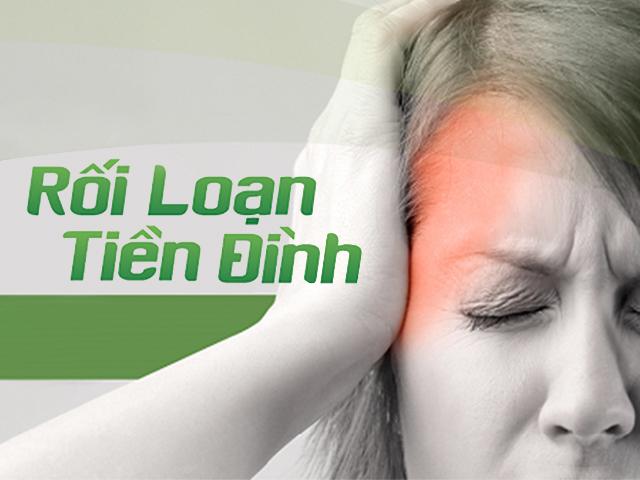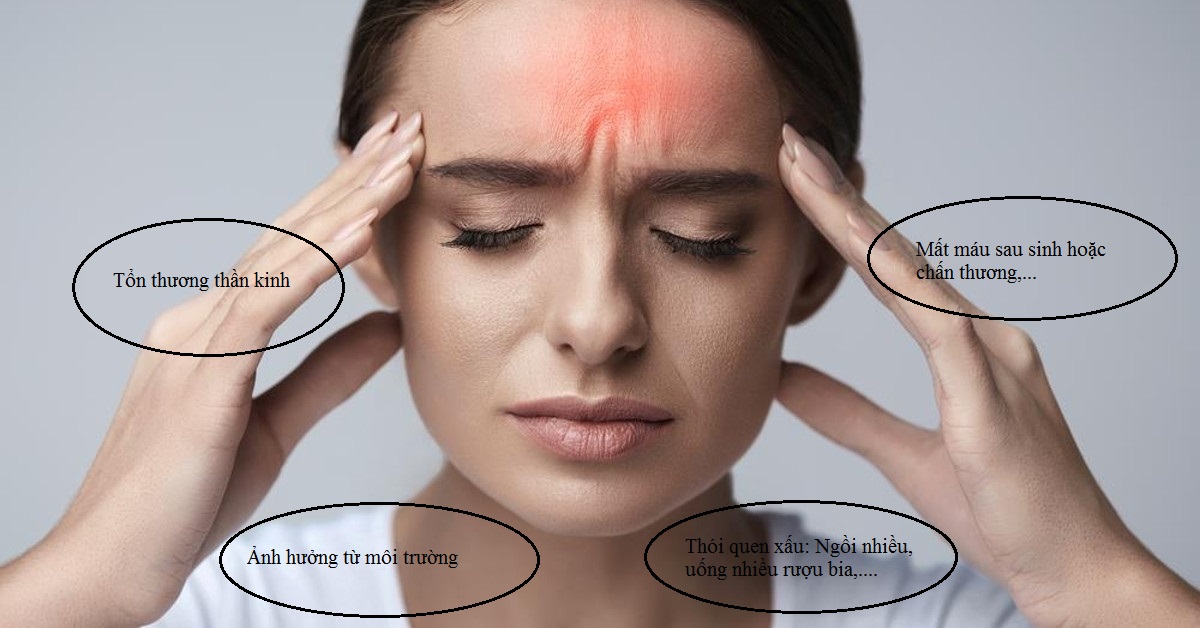Vestibular dysfunction is what? Symptoms of vestibular disorders
Vestibular disorders become more and more common and affect the lives of patients. So what is vestibular disorder ? What are the vestibular causes and symptoms of vestibular disorders? Find out about the disease through TipsMake.com's blog!
content
- 1. What is vestibular disorder?
- What is vestibular?
- What is vestibular disorder?
- Types of vestibular disorders
- Who is prone to vestibular disorders?
- Can the vestibular disorder be cured?
- 2. Causes and symptoms of vestibular disorders
- Causes of vestibular disorders
- Symptoms of vestibular disorders
1. What is vestibular disorder?
What is vestibular?
The vestibular is a system of the nervous system behind the cochlea. The main role of the vestibule is to balance the body when we move, rotate, bend, etc. The vestibular system is controlled by nerve number 8, also known as the information transmission line.
What is vestibular disorder?
Vestibular dysfunction is what? This is essentially a pathology that causes patients to fall into a state of imbalance and often suffer from dizziness, lightheadedness, tinnitus, nausea, staggering, etc. Vestibular disease is very recurring and makes pictures enjoy work as well as quality of life.

Vestibular disorder - a common disease today
Types of vestibular disorders
Vestibular disorders are divided into two main categories: peripheral vestibular disorders and central vestibular disorders.
- Peripheral vestibular disorders : Due to injury in the inner ear, vestibular nerves or occlusive vascular disease in the posterior neck area. This disease is quite benign. The patient is prone to dizziness when changing posture but remains alert when moving.
- Central vestibular disorders : Due to vestibular or wire-filled nuclear injury associated with vestibular nuclei in the brain stem and cerebellum. People with central vestibular disorders often experience symptoms such as walking difficulties, dizziness when changing positions, or darkening your face, .
Who is prone to vestibular disorders?
- Adults aged 40 and over (accounting for about 35%).
- Females are more prone to vestibular disorders than men and are often mistaken for cerebral circulation defects.
- People often live in a very noisy environment, the weather is uncomfortable when changing seasons, eating contaminated food.
- Postmenopausal women.
- People often think, often stressed.
- People are less active and sit more.
Can the vestibular disorder be cured?
Vestibular disorder is a dangerous disease, especially when the patient is not treated properly and promptly. The disease may only appear for a few days but it can last and recur many times. If the patient tries to walk when he or she is sick, it is very easy to fall, lightly scratching the skin, heavier, it may break his arms, legs, traumatic brain injury if he accidentally hits the hard object. In addition, people with vestibular disorders may also have a stroke due to poor blood flow to the brain.
Can the vestibular disease be cured? In fact, with an appropriate treatment regimen and the support of brain tonic drugs, patients can completely prevent complications, prevent recurrence even cured. According to doctors, vestibular disorders will be completely cured if cured is the cause of vestibular disorders.

Vestibular disorders can be completely cured if treated properly and promptly
2. Causes and symptoms of vestibular disorders
Causes of vestibular disorders
There are many causes of vestibular disorders, the most common of which are the following:
- Due to low blood pressure, sequelae of complications, anemia, cardiovascular disease, . causing blood vessels to clog, blood to the brain is poor.
- Influence from a number of pathologies such as brain tumors, neural tumors, neuritis, otitis media.
- Due to excessive noise in the environment, sudden weather changes.
- Sitting much, sedentary.
- Blood loss due to trauma or postpartum women.
- Drink lots of alcohol.
- The body is poisoned or has side effects when using some medicines.
- Damage to the nervous system due to fatigue, prolonged stress.

There are many causes of vestibular disorders
Symptoms of vestibular disorders
People with vestibular disorders often experience the following symptoms:
- Insomnia
- There is buzzing in the ears
- Dizziness : The patient feels that his body is reeling, wobbly, standing up and sitting down hard or severely, unable to sit up. Some schools also experience symptoms of nausea and blurred vision.
- Loss of balance : Vestibular disorder causes an imbalance, makes it difficult for you to walk, and a feeling of lightheadedness, clinging to something that can move.
- Fainting, losing consciousness : Vestibular disorder if not treated promptly will reduce blood flow to the brain, lower blood pressure, heart dysfunction, etc. As a result, patients may lose their will awake and faint.

Patients with vestibular disorders or dizziness, loss of balance
Hopefully our article will help you know what vestibular disorders are as well as the causes and symptoms of vestibular disorders. Don't forget to visit TipsMake.com regularly to share lots of useful health information!
>>> More references:
- What should people eat when they have a lack of blood?
- Reduced blood flow in the brain can make us stutter
- 7 Ways to increase memory and ability to concentrate in learning
You should read it
- ★ Finding a new gene can join to cause anxiety disorder
- ★ Scientists officially found the cause of obsessive-compulsive disorder
- ★ Top 10 'disorder' diseases are stigmatized in the world today
- ★ Top 10 mysterious psychosis syndrome that the human brain can afford
- ★ Disorder, a completely new survival co-op shooter, has a Beta version, invited to download and experience